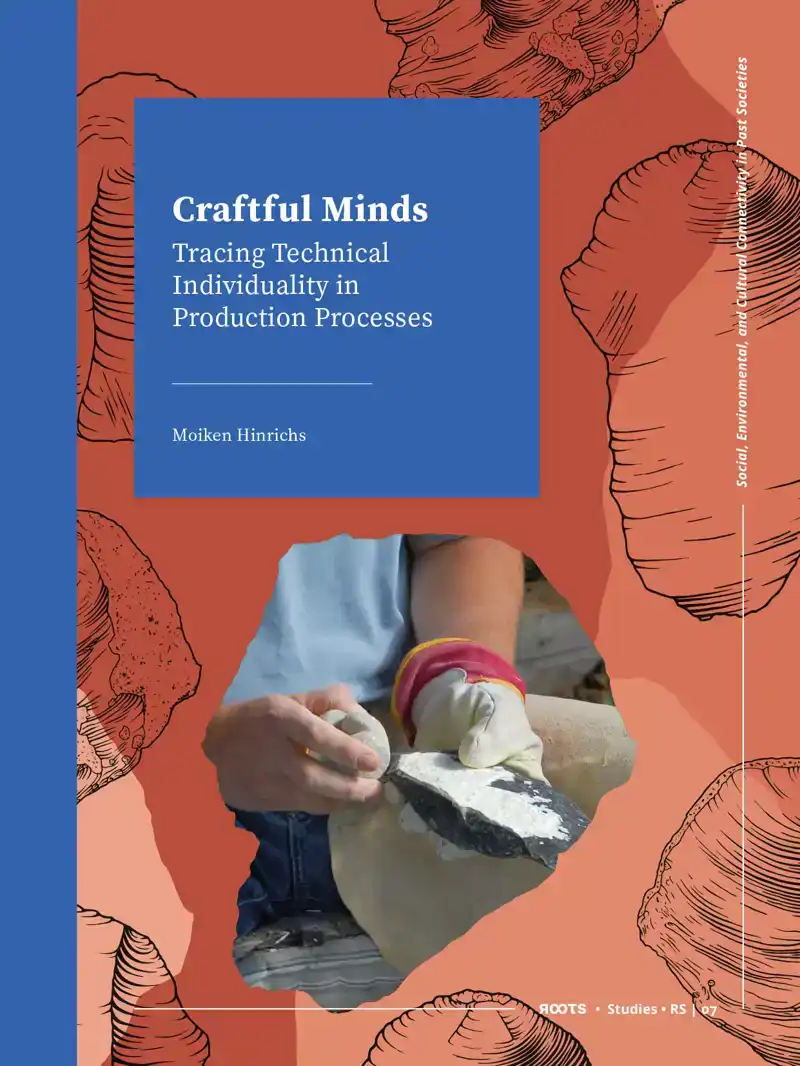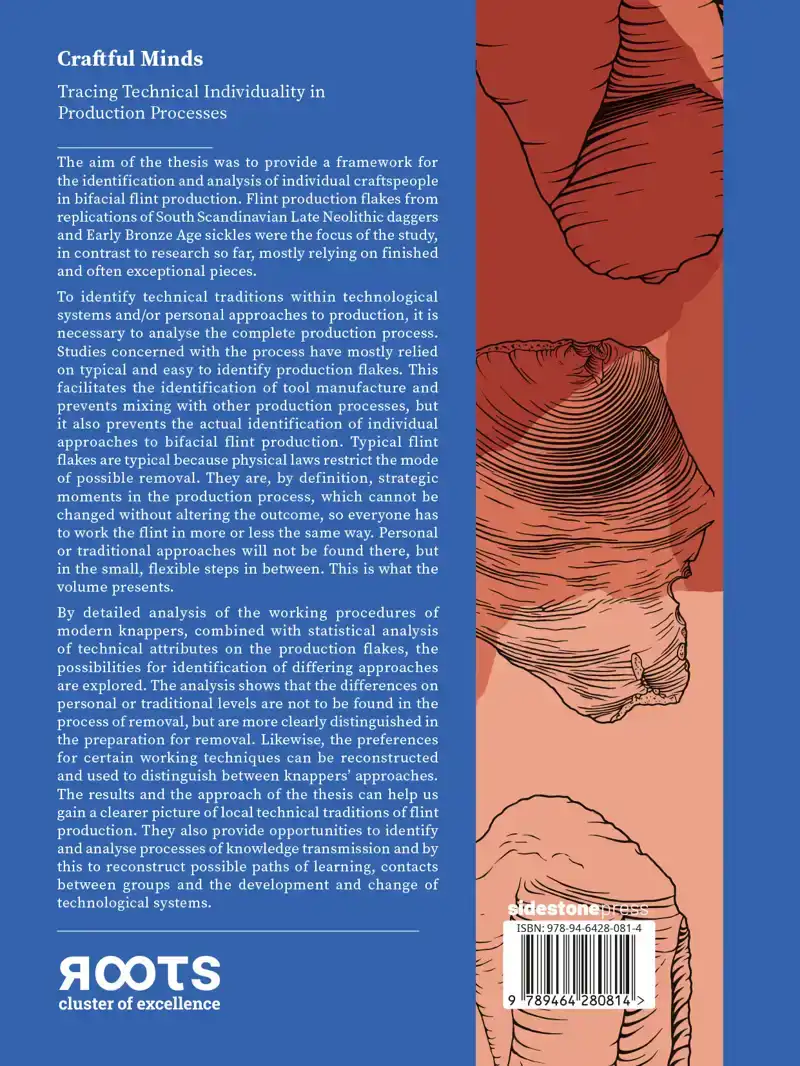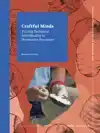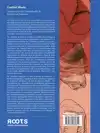- Engels
- Pockets
- geschiedenis alg.
- archeologie
- CRAFTFUL MINDS
HINRICHS, MOIKEN
CRAFTFUL MINDS
95,00incl BTW
Vertrouwd sinds 1927
Persoonlijke aandacht en advies
Vanaf 17,50 gratis verzenden NL & BE
Meer dan 150.000 artikelen online
Omschrijving CRAFTFUL MINDS
The aim of the thesis was to provide a framework for the identification and analysis of individual craftspeople in bifacial flint production. Flint production flakes from replications of South Scandinavian Late Neolithic daggers and Early Bronze Agesickles were the focus of the study, in contrast to research so far, mostly relying on finished and often exceptional pieces.
To identify technical traditions within technological systems and/or personal approaches to production, it is necessary to analyse the complete production process. Studies concerned with the process have mostly relied on typical and easy to identify production flakes. This facilitates the identification of tool manufacture and prevents mixing with other production processes, but it also prevents the actual identification of individual approaches to bifacial flint production. Typical flint flakes are typical because physical laws restrict the mode of possible removal. They are, by definition, strategic moments in the production process, which cannot be changed without altering the outcome, so everyone has to work the flint in more or less the same way. Personal or traditional approaches will not be found there, but in the small, flexible steps in between. This is what the volume presents.
By detailed analysis of the working procedures of modern knappers, combined with statistical analysis of technical attributes on the production flakes, the possibilities for identification of differing approaches are explored. The analysis shows that the differences on personal or traditional levels are not to be found in the process of removal, but are more clearly distinguished in the preparation for removal. Likewise, the preferences for certain working techniques can be reconstructed and used to distinguish between knappers'' approaches. The results and the approach of the thesis can help us gain a clearer picture of local technical traditions of flint production. They also provide opportunities to identify and analyse processes of knowledge transmission and by this to reconstruct possible paths of learning, contacts between groups and the development and change of technological systems.
To identify technical traditions within technological systems and/or personal approaches to production, it is necessary to analyse the complete production process. Studies concerned with the process have mostly relied on typical and easy to identify production flakes. This facilitates the identification of tool manufacture and prevents mixing with other production processes, but it also prevents the actual identification of individual approaches to bifacial flint production. Typical flint flakes are typical because physical laws restrict the mode of possible removal. They are, by definition, strategic moments in the production process, which cannot be changed without altering the outcome, so everyone has to work the flint in more or less the same way. Personal or traditional approaches will not be found there, but in the small, flexible steps in between. This is what the volume presents.
By detailed analysis of the working procedures of modern knappers, combined with statistical analysis of technical attributes on the production flakes, the possibilities for identification of differing approaches are explored. The analysis shows that the differences on personal or traditional levels are not to be found in the process of removal, but are more clearly distinguished in the preparation for removal. Likewise, the preferences for certain working techniques can be reconstructed and used to distinguish between knappers'' approaches. The results and the approach of the thesis can help us gain a clearer picture of local technical traditions of flint production. They also provide opportunities to identify and analyse processes of knowledge transmission and by this to reconstruct possible paths of learning, contacts between groups and the development and change of technological systems.
Specificaties
- MerkSidestone Press Dissertations
- GroepGESCHIEDENIS ALG (680)
- Barcode9789464280821
- LeverstatusActief
Reviews
0.0/5.0
Gemiddelde uit 0 reviews
Meest behulpzame reviews
Nog geen reviews geschreven




